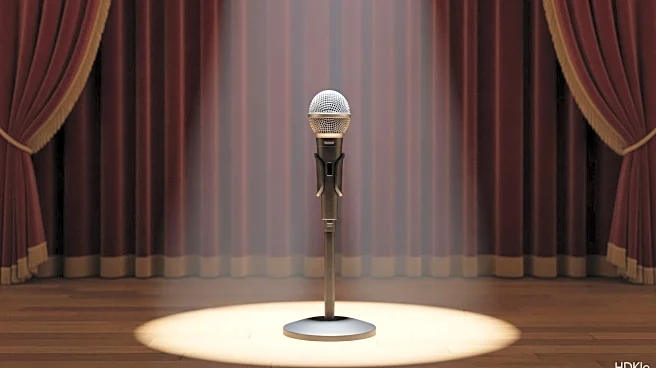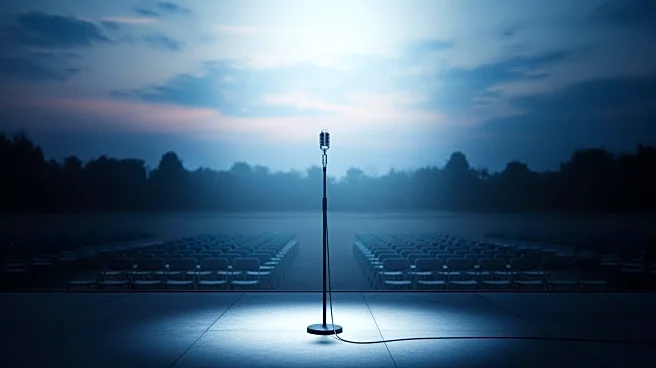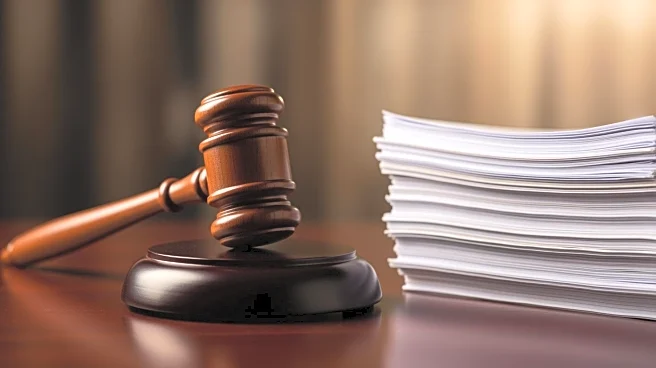What is the story about?
What's Happening?
Aziz Ansari faced scrutiny from Jimmy Kimmel regarding his participation in the Riyadh Comedy Festival, which has been criticized for deflecting attention from Saudi Arabia's human rights violations. Human Rights Watch highlighted the festival's timing with the anniversary of journalist Jamal Khashoggi's murder, suggesting it was a distraction from the country's repression of free speech. Ansari defended his decision, stating he aimed to engage with the people and promote dialogue, despite the Saudi government's controversial actions. He also pledged to donate part of his performance fees to organizations supporting free press and human rights.
Why It's Important?
The participation of high-profile comedians in the Riyadh Comedy Festival has sparked debate over the ethical implications of performing in countries with questionable human rights records. This situation underscores the tension between cultural engagement and political activism, as artists navigate the complexities of international performances. The festival's association with the Saudi government raises concerns about the role of entertainment in potentially legitimizing or overlooking human rights abuses. The controversy highlights the broader issue of how cultural events can be used to influence public perception and distract from critical issues.
What's Next?
Comedians and performers may face increased pressure to address human rights issues when participating in international events, particularly in countries with controversial records. Human Rights Watch has urged performers to advocate for the release of detained activists, which could lead to more artists using their platforms for political activism. The ongoing dialogue about the role of entertainment in political contexts may influence future decisions by artists and organizers, potentially leading to more conscientious engagement with global audiences.
Beyond the Headlines
The controversy surrounding the Riyadh Comedy Festival reflects broader ethical considerations in the entertainment industry, where performers must balance artistic expression with social responsibility. This situation may prompt discussions about the power dynamics between governments and cultural figures, and the potential for art to serve as a catalyst for change. The festival's timing and context also raise questions about the effectiveness of cultural diplomacy in addressing human rights issues.
















